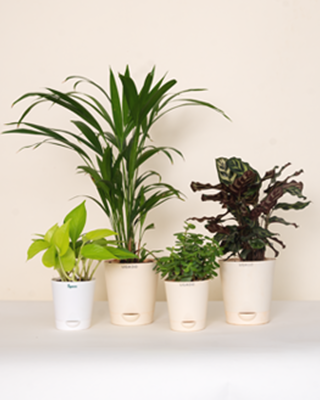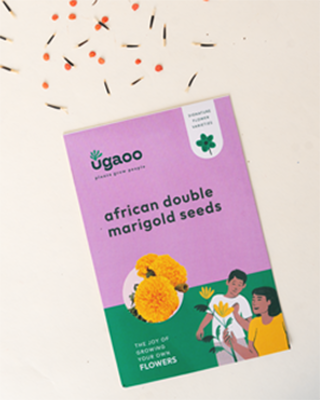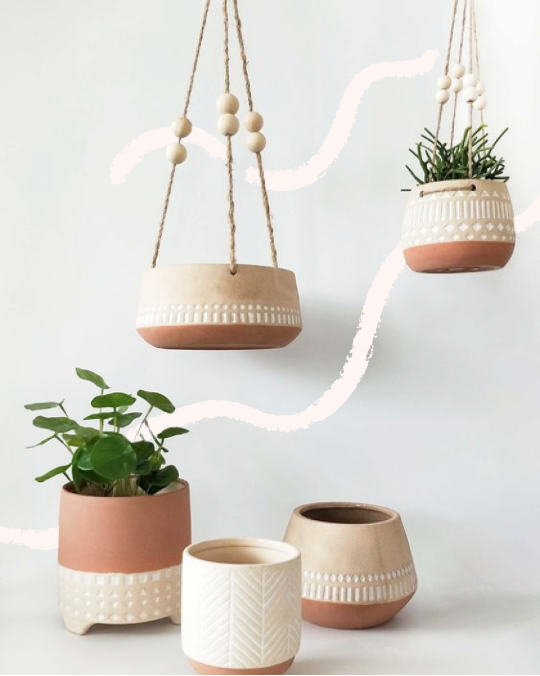The Golden Dewdrop plant, called Duranta erecta scientifically, is a flowering shrub that sometimes - although very rarely - grows into a small Duranta tree. Known by not just one but many names, some of its more commonly known names are Pigeon Berry, Angel Whisper, and Sky Flower.
Often grown as an ornamental plant, some benefits and uses of the Duranta plant easily go unnoticed by most. Surprising how a plant as toxic as this one has benefits? Read on to know more!
• Origins of the Golden Dewdrop: Duranta Plant
The Golden Dewdrop originates from the warmer regions of the Americas, including southern Florida, Mexico, and the Caribbean.
Thriving in tropical climates, this resilient evergreen shrub has adapted to diverse environmental conditions. Its native roots trace back to landscapes full of sunshine and higher temperatures, where it has flourished and has been grown as an ornamental plant by garden enthusiasts worldwide.
• Characteristics of Duranta Erecta
The Duranta Erecta, commonly known as the Golden Dewdrop, is named so with good reason. One of its most striking features is its golden-yellow Duranta fruits or berries, resembling dewdrops that add a touch of golden elegance to the landscape. These striking fruits have the ability to keep you interested and mesmerized. 
This evergreen shrub has an upright growth habit and reaches heights between 6 to 15 feet. Showcasing wonderful leaves arranged in opposite pairs, the Duranta plant often displays variegated patterns which enhance its visual appeal.
It produces delicate tubular Duranta Erecta flowers which bloom in clusters, and attract pollinators like butterflies and hummingbirds.
• Duranta Erecta Plant (Golden Dewdrop) Benefits and Uses
While being a hardy plant that adapts to various environments and climates, the Golden Duranta uses are also very versatile. Here are a few of its benefits that you may or may not have expected!
1. Ornamental Value:
The Golden Dewdrop plant often serves as a visually stunning focal point in gardens, which makes it a perfect fit for landscaping. Its upright growth habit and vibrant flowers make it a popular choice for creating hedges (and fence/boundary) which helps add both privacy and beauty.
2. Potted Plants:
Duranta Erecta adapts well to being grown in pots, so it is very well-suited for container gardening. Due to this, it can help with enhancing balconies, patios, or indoor spaces.
3. Wildlife Attraction:
The plant's stunning flowers and golden berries attract butterflies and other birds, thus contributing to the overall biodiversity of gardens.
4. Erosion Control:
Due to its dense growth habit, the Golden Dewdrop plant is effective in preventing soil erosion, making it a practical choice for landscaping on slopes.
5. Medicinal Uses:
In traditional medicine, some cultures have explored the potential medicinal properties of certain parts of the plant. Although scientific validation is ongoing, there are a few medicinal benefits of this plant that traditional medicine swears by. here are a few of them.
a. Anti-inflammatory Properties:
Some traditional medicinal practices suggest that parts of the Golden Dewdrop may have anti-inflammatory properties. Extracts from the plant have been used to address skin conditions associated with inflammation.
b. Antimicrobial Potential:
Various studies hint at the Duranta Erecta's potential antimicrobial properties. It has often been explored in traditional medicine for managing skin infections, wounds, or other microbial issues.
c. Antioxidant Content:
Some parts of the Duranta plant are believed to contain antioxidants, which are compounds that can neutralize free radicals in the body. Free radicals are atoms in the body that contribute to the inception of many chronic diseases in humans. Antioxidants, on the other hand, play an important role in maintaining overall health.
d. Traditional Healing Practices:
In some cultures, Golden Dewdrop plant extracts have been traditionally used for their supposed healing properties. This includes using those extracts to treat ailments ranging from skin issues to digestive discomfort.
• Duranta Plant Care Tips
Caring for the Golden Dewdrop is relatively straightforward, making it an ideal choice for both novice and experienced gardeners. Here are some Durant plant care tips you must follow if you wish to grow the plant:
1. Sunlight:
The Duranta plant thrives in full sunlight. Ensure it receives at least 6-8 hours of direct sunlight daily for optimal growth and flowering.
2. Soil:
Well-draining soil is important to ensure that the plant gets adequate water while still preventing waterlogging. A slightly acidic to neutral soil is usually considered ideal.
3. Watering:
While the Golden Dewdrop is drought-tolerant once established, regular watering is essential during its initial growth period. Ensure the soil remains consistently moist but not waterlogged.
4. Pruning:
Regular pruning helps maintain the Duranta plant's shape. It encourages bushier growth and removes dead or diseased branches.
5. Fertilization:
Apply a balanced, slow-release fertilizer during the growing season to promote healthy foliage and vibrant blooms.
Buy Fertilizers online
In some countries, in some specific areas, this plant has grown to become an invasive species. However, this isn't the case everywhere. The Duranta Erecta, also called Golden Dewdrop, is a beloved and hardy ornamental plant. Many also grow it for its uses and benefits!















